During my undergrad in biomedical sciences, I was let down by the lack of societal context on our courses. More than lack – at times it seemed like a deliberate absence that was incomprehensible given what I was learning outside of lectures. Things became particularly interesting and disappointing when we came to the module on global health and infectious disease, where lecturers and students alike were given free rein to voice their unqualified opinions about the health of developing countries – needless to say, both groups were mostly white and from the global North…
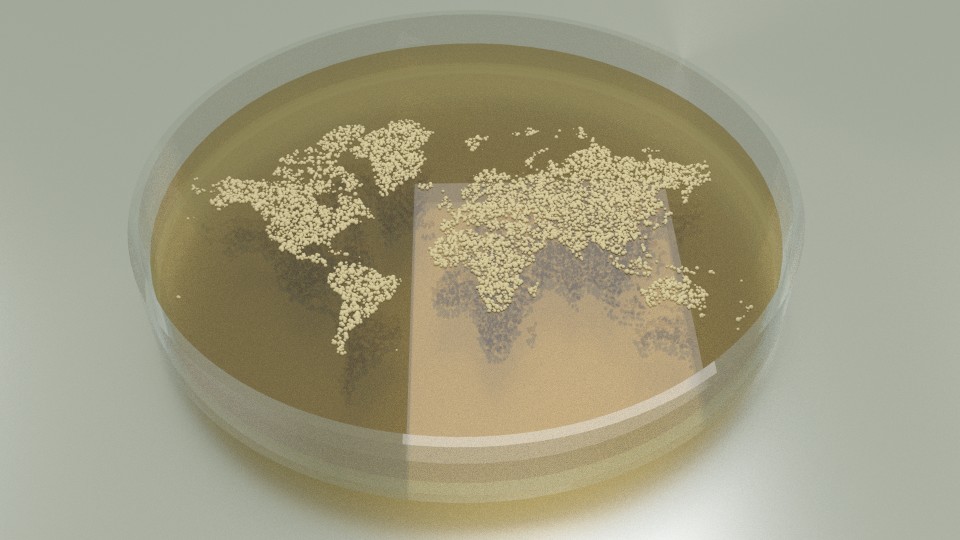
Remembering modern medicine as a colonial production: do we still need to be reminded that health is political?
Living through COVID-19 has been a long series of depressing reminders that our current health crises are a political matter profoundly informed by recent, non-biomedical history: financial crashes, housing crises, austerity, inhumane border control. It’s when we forget this and try to act as though ill people can be treated separately from their society that we really run into hurdles. To give a completely hypothetical example, what does a top down governmental command to “stay home and save lives” mean if many people literally can’t afford to take time off work?
During my undergrad in biomedical sciences, I was let down by the lack of societal context on our courses. More than lack – at times it seemed like a deliberate absence that was incomprehensible given what I was learning outside of lectures.
Things became particularly interesting and disappointing when we came to the module on global health and infectious disease, where lecturers and students alike were given free rein to voice their unqualified opinions about the health of developing countries – needless to say, both groups were mostly white and from the global North. We were taught that developing countries are naturally diseased and require pharmacological, western intervention in order to be saved. It didn’t need to be said explicitly. It was clear enough in what was not said, the places we were not invited to think through. By our very position as doing one class on global health, our opinions mattered more than the voices of those living in these countries, with these diseases, those professionals doing work.
Another pillar in this fragile architecture was maintained by the health voluntourism opportunities blithely advertised after lectures, appealing to desperate would-be medics finding it difficult to compete for experience in the UK (I reluctantly include myself in this group): Go To ‘Africa’ And Build A Hospital For The Low Price Of £3000!!
These limited perspectives are not only harmful, but completely ahistorical. It is near impossible to understand current disease patterns globally without reference to colonialism.
We learnt about the so-called classic examples of infectious disease: malaria, sleeping sickness, schistosomiasis. But the current levels of these in many locations can be directly traced to colonialism and environmental destruction. As biomedical scientists, we must be interested in the origins of diseases, the events that brought certain formations of sickness and wellness into place, if we are to do more than simply react to disaster and instead plan for a healthier future.
To name just a few examples: in Uganda, while locals had lived in equilibrium with sleeping sickness for thousands of years, the change in livestock breeds and increased density of settlements post-British colonisation caused an outbreak that killed up to 300,000 people between 1889 and 1896 and remains endemic. In Brazil, increases in malaria rates can be directly linked to Amazonian deforestation, which forms the shallow pools that mosquitoes breed in. In Egypt, infamous for its high rates of parasitic waterborne disease, the damming of the Nile changed aquatic snail lifecycles and distribution patterns to produce an epidemic that is ongoing, and in fact providing an opportunity for some of the first colonial public health interventions to be trialled.
Medical knowledge is not objective and value-free, and is constructed by social and political forces in order to support particular agendas. To some it may appear difficult or needlessly complicated to keep histories and epistemologies in mind while staring into a petri dish. But remembering how that knowledge got here is just as important if we are to work towards undoing racist, imperialist thought within educational institutions.
The gap between undeniable history and common knowledge is even more surprising when until quite recently, UK institutions were loud and proud about their intertwined histories of medicine and imperialism. The medical faculty of UofE produced doctors that were trained on slave plantations in the Caribbean. While Sir Ronald Ross discovered the link between malaria and mosquitoes, thus saving millions of lives in the long run, his motivation was to aid the expansion of the British Empire: in 1899 he argued that “in the coming century, the success of imperialism will depend largely upon success with the microscope”.
These legacies are keenly felt in the present day. Look to the shockingly high maternal mortality rates for black women in the UK, the continuing reproductive experimentation and abuse on women of colour in US detention centres, the groundless race-based differentiation in prescription and diagnosis for common diseases. I stress again: none of these are biological or in any way ‘natural’. Racial differentiation in biomedical sciences and health outcomes are due to society and history, and we continue to ignore this to the detriment of millions of lives.
So how to respond to this? Myself and Ida Sey (@Ida_Sey on Twitter) have begun a petition to expand and problematise the current biomedical and medical sciences curriculum, following an informal seminar held to see what those who have taken the course would want. As veterans and indeed graduates (go class of 2020!), we have no further obligations to the University of Edinburgh, but as those who are invested in biomedical science as a critical intervention point for justice, we are committed to change.
Our three (inexhaustive) demands to the University are as follows:
- Colonial history teaching
- Contribution of the university to colonial medical knowledges, experimentation, and regimes of control
- Colonial histories of the countries in which we are learning about disease
- Neo-colonialism and global health, and the role of health NGOs in maintaining these structures
- Basic
sociology and race theory
- Race is not biological and is socially constructed
- Gender is not biological and socially constructed
- Inequality as a major recognised cause of ill health outcomes
- Critical
science theory
- How scientific knowledge is produced
- Science is not objective
- Indigenous, pre/post/de/colonial health and practises
- Social and cultural construction of disease and disability (including mental health)
We strongly believe that a grounding in these concepts would make for better scientists. It would make for spaces where scientists of colour and those from the global South do not feel retraumatised, where indigenous and holistic knowledges are centred. It would make for conversations surrounding COVID to stop putting the onus on people of colour to make better decisions – or indeed to look for some magical gene that is causing their illness – and to look out of the lab to what is obvious.
In writing and calling for these structural changes, we draw from and connect with struggles to introduce colonial history in education that are ringing out around the UK and indeed globally; discourses that have been going on for decades, given new strength by the renewed conversation around race in the UK. Studying in a nation that has drawn its wealth through accumulation by dispossession, we have the luxury of being able to forget how we got here.
Not all history can be included, of course. But the absence of particular histories actually creates its own story. As Cedric Robinson, late and great Black academic reminds us:
“[imperialist, racist etc.] regimes do possess history… but [such] regimes are unrelentingly hostile to their exhibition. This antipathy exists because a discoverable history is incompatible with [such] regimes and from the realization that paradoxically, so are its social relations.”That is to say: learning the racist and colonialist history of current medical knowledge allows us to realise that our current situation has been consciously constructed and is not biologically or essentially determined. It thus also allows us to imagine a world where these regimes do not control all knowledge – a world with justice extending beyond.
To anyone reading this who would like to contribute to this movement, the first and most important step is to begin discussions such as these within your own faculties, own places of learning and education. To connect with organisations doing colonial history research. To ask your lecturers and teachers why some things have been forgotten. To ask yourself who benefits and who suffers from oblivion.
Brief reading list (please reach out to jesspcox@gmail.com for more resources):
- ‘Structure & the Clinic’ (YouTube channel)
- Race and Health (YouTube seminar series)
- Decolonising Medical Curriculum (Facebook group)
- Superior – Angela Saini is a good introduction to the history of scientific racism (although in my opinion does not go into enough depth into how the origins of Western science are colonial)
- How to Make Healthcare Anti-Racist – Tamorah Lewis
- The Pandemic is a Portal (video) – Arundhati Roy
- Decolonising Global Health Edinburgh

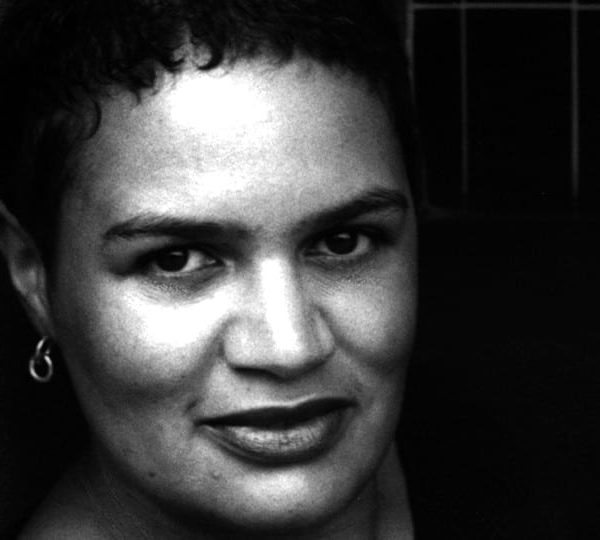

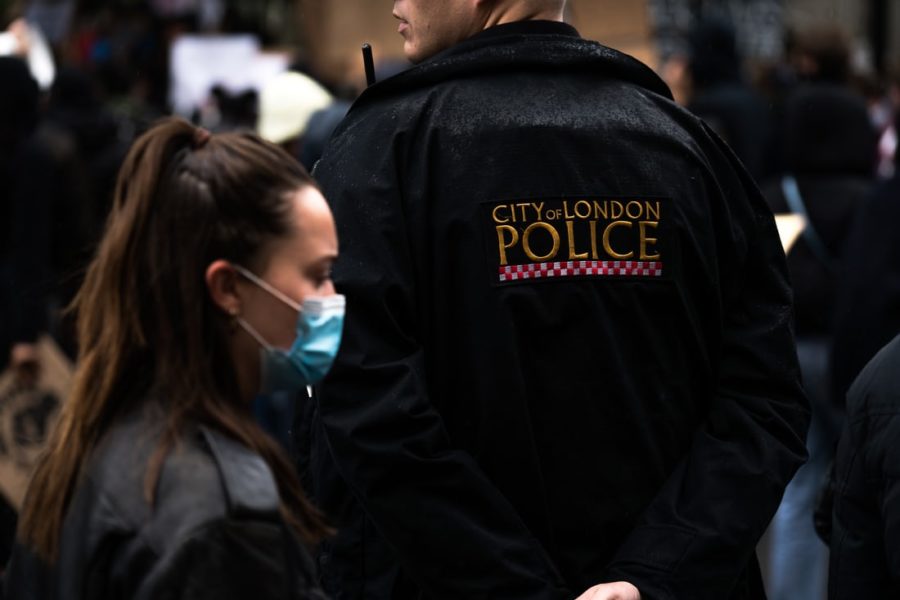
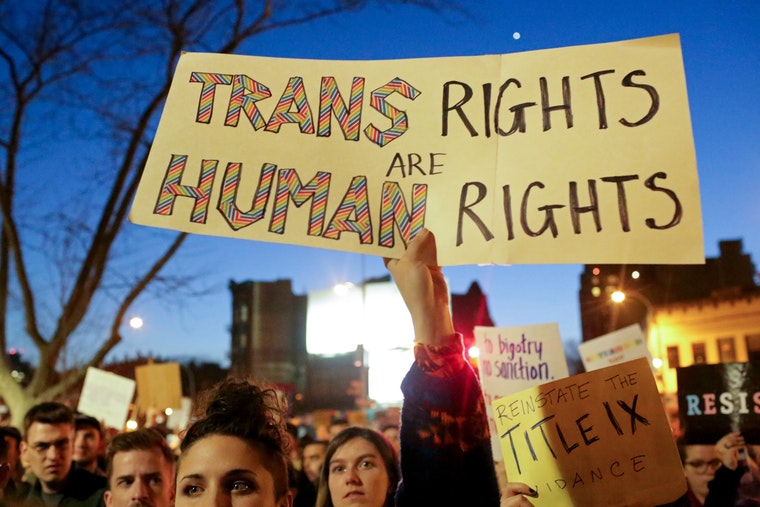
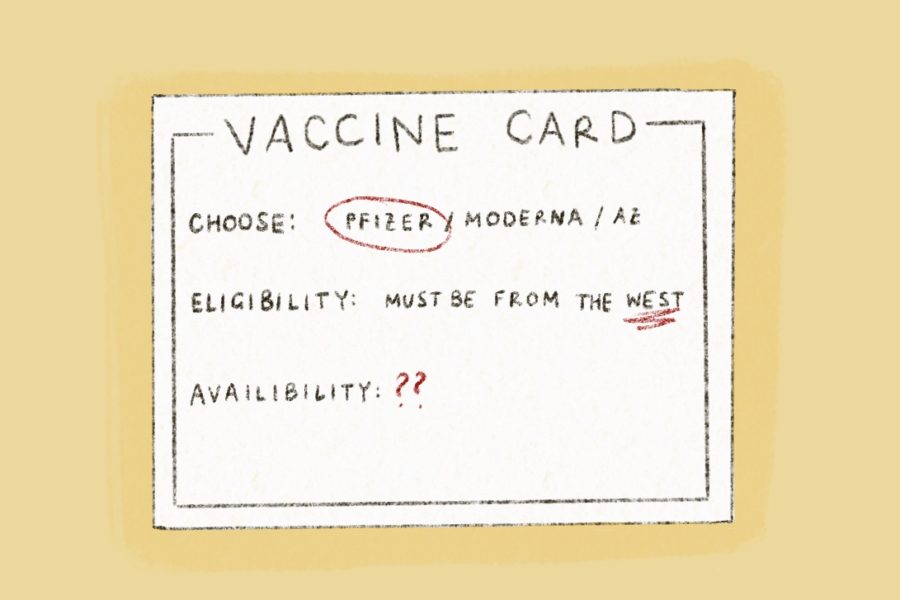
Leave a Comment